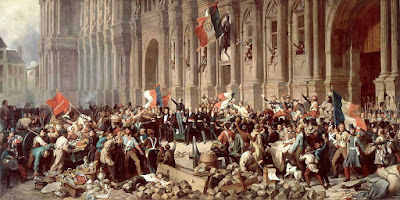First blog post in a while...
This last weekend I went to Cannes with my friends that are
actually from there. I stayed at the house of my friend’s mother, a 60 year old
woman who reminds me of the woman with the weird house that gets killed in
Kubrick’s A Clockwork Orange.
Not because of the woman herself, but because of the statues
she has in her house that reminds me of that house from the movie - she has a statue of a naked woman with her legs opened in
her living room. I thought it was awesome.
Anyway, the house had a pool and a backyard, both which I greatly
miss, it was nice to be in a house with a lot of room to walk around, trees, plants, room, room, room.
Cannes was beautiful, we lived 3 minutes away from the
Croisette, we even went to Juan-Les-Pins, which is really close from Cannes, in
a convertible BMW, pas mal non? I got to see the life in a different
side of France, where they have cars and no traffic, where the air is pure, and
smells like ocean. It reminded me of home.
 |
| Promenade de la Croisette |
 |
| La Croisette and posters of the festival <3 |
HOWEVER, the best part of it all, even better than all the
parties, pool, private beach, the Croisette, was what was going on in Cannes...
LE FESTIVAL DE CANNES!!!!!!!!!!!!!!!!!!!
 |
| Montée des Marches happens in that red carpet for every movie. |
 |
| Still the same building, different side, this is called Palais des Festivals, there's the main theater inside where the films are shown (only the big ones, or during the first exhibit, after they move to smaller theaters all over town). |
I’m a film major, and nothing in this life makes me happier
than watching films and talking about films, and reading about films......
Well, the festival is all that into one. Everyone is in town
for the festival, all the stars, even though my favorite two people in this
business (WOODY freaking ALLEN, and Léa Seydoux!! [next Bond girl, but don’t
get too excited, she’s mine]) were there one week before I arrived, I was
pretty upset about it.
But still, being in a city where they are celebrating films,
not just any films, amazing ones, and some bad ones (the worst one this year
was American, "The Sea of Trees") from all over the world,
and seeing all these people talking about film everywhere you go is
simply perfect, I felt like I was in a dream.
I got to watch some short film as well, but the one movie I
really wanted to see apart from Woody Allen’s “Irrational Man”, was invitation only, so I couldn’t see it, but I heard it from a friend that saw it and she said it was great, the movie is called “The Lobster” and it won
the Prix du Jury in the festival (Léa Seydoux is in it).
Going to the Festival was a dream to me, before I found out
about it, I was a huge fan of the Oscars, but then three years ago I discovered
Woody Allen films, which led me to Foreign films, from Sweden, Italy, and of course
France. When I watched a French movie called La Vie d’Adèle in March 2014, I didn’t
know much about French films or even about the Festival, and above all, I could
not understand a single word of French.
 |
| First movie I've ever bought in France :) |
 |
Adèle Exarchopoulos, Abdellatif Kechiche, LEA SEYDOUX, and the Palme d'Or,
Festival de Cannes 2013. |
After I watched this movie I fell in love with it,
instantly. I was fascinated by the story, the cinematography, the acting, and
French – it sounded so good. And so I made my research on the filmmaker and
actresses, the production and so on, and then I found out it had won the main
award of the Festival de Cannes in 2013, the famous Palme d’Or.
After that I started watching films that had previously won
the award in the Festival, and started watching a bunch of French movies. I
discovered that my favorites were from the 60s, the French New Wave period, I
loved the politics in the films, the style, the songs, the philosophy, the
flawed heroes/characters, the cigarette smoking, and French.
I wouldn’t be here if it wasn’t for La Vie d’Adèle.
I can't wait to go back to Cannes, hopefully one day to exhibit my very own film.












